Apr 2, 2024 12:59 PM
Saxophonist, Sonic Explorer Casey Benjamin Dies at 45
Casey Benjamin, the alto saxophonist, vocalist, keyboardist and producer who stamped his distinctive sounds on the…
For almost every British musician, hearing the word “Brexit” induces a quickened heart rate.
The UK is scheduled to leave the European Union on March 29, 2019—at 11 p.m., to be precise. And Brits remain none the wiser as to how it will affect freedom of movement between the UK and the EU, creating anxiety for artists and labels who increasingly are struggling to book London dates on their European tours, as Pete Buckenham, founder of London-based label On The Corner Records, knows only too well.
Buckenham’s imprint supports Kenya-based artist Makadem, a figurehead of the Benga scene in Nairobi. “We were looking at him coming over [to the UK] for a key gig this July. He applied months ago for both his Schengen and British visa for the gig I’d booked in,” the label head said.
It was only the day before the scheduled show that Makadem contacted Buckenham to explain that he’d been given permission to pick up his passport and travel to the UK. “I can’t really work on that basis,” Buckenham said. “It’s not the way to operate. You can’t run an effective music strategy or business on those kinds of terms.”
British music festivals are feeling the strain, too. In a public statement, WOMAD festival co-founder Peter Gabriel urged the British government in July to make it easier for international artists to perform in the UK, following the cancellation of three acts after they’d faced difficulties with British border controls. Among those prevented from entering the UK for WOMAD performances this year were Sabry Mosbah (Tunisia), Wazimbo (Mozambique) and members of Tal National (Niger). Indian sisters act Hashmat Sultana only were able to arrange travel to the UK for the day after their scheduled performance. While each of these artists were set to travel to the UK from outside of the EU, there are worries within the British music industry that Brexit could increase the number of complications at the border, leading to delays or canceled performances at the final hour.
“It’s the unknown, that’s the real challenge,” said Emily Jones, head of programming for Cheltenham Jazz Festival, one of the UK’s largest jazz festivals. “We don’t know what’s going to happen, and [Brexit’s] drawing ever closer.”
Jones said she hasn’t experienced issues like those described by Buckenham, but is anxious about what could change, given that 40 percent of the Cheltenham festival’s programming is centered on international artists.
“About five or six years ago, just before I started at Cheltenham, there was a change to the system where they created a new category of visitors that were allowed to the UK for permitted paid engagements,” the festival programmer said. “Basically, you could enter the UK as a visitor in order to perform somewhere, as long as it’s paid, you have a contract, you don’t stay for longer than a month—and you can prove that you want to leave again.”
Jones recalled a Brazilian artist being “detained” at the Birmingham Airport, despite reportedly having presented appropriate paperwork, “because they mentioned in the interview that they would be recording an album in the UK,” she said. “It shows you how much of it is down to interpretation.”
Of the upcoming change in regulations, she said, “I expect teething problems.”
London-based saxophonist Nubya Garcia, who’s been performing on international stages for several years, said the notion of Brexit is “completely xenophobic,” given the difficulties that artists from outside the UK will face while organizing performances. Most of her struggles, though, have been connected to performing in the United States.
“It’s one of the longest processes I’ve been through,” she said about obtaining the proper visas. She performed various dates in the U.S. earlier in 2018, including Winter Jazzfest in New York City and SXSW in Austin, Texas, but originally intended to play additional shows in the States later this year.
“They told me to reduce the time. That meant I couldn’t do the dates I had in May, August and October, and the following January. It was heartbreaking,” she said.
Garcia is applying to return stateside in November, but said the process has become “harder over the last couple of years.”
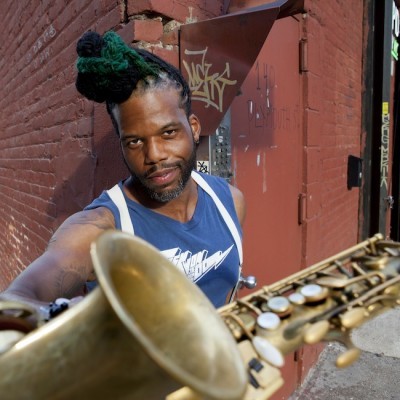
Benjamin possessed a fluid, round sound on the alto saxophone, and he was often most recognizable by the layers of electronic effects that he put onto the instrument.
Apr 2, 2024 12:59 PM
Casey Benjamin, the alto saxophonist, vocalist, keyboardist and producer who stamped his distinctive sounds on the…
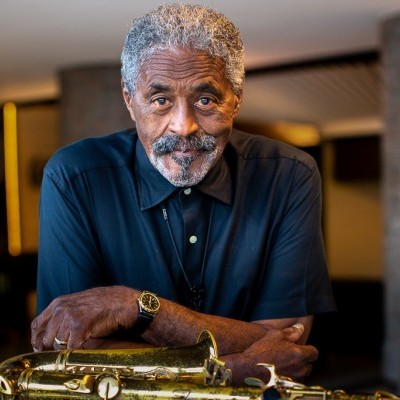
“He’s constructing intelligent musical sentences that connect seamlessly, which is the most important part of linear playing,” Charles McPherson said of alto saxophonist Sonny Red.
Feb 27, 2024 1:40 PM
“I might not have felt this way 30 to 40 years ago, but I’ve reached a point where I can hear value in what people…
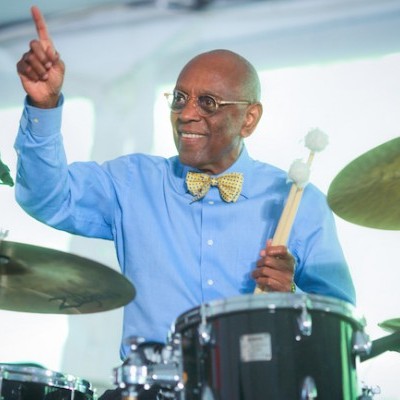
Albert “Tootie” Heath (1935–2024) followed in the tradition of drummer Kenny Clarke, his idol.
Apr 5, 2024 10:28 AM
Albert “Tootie” Heath, a drummer of impeccable taste and time who was the youngest of three jazz-legend brothers…
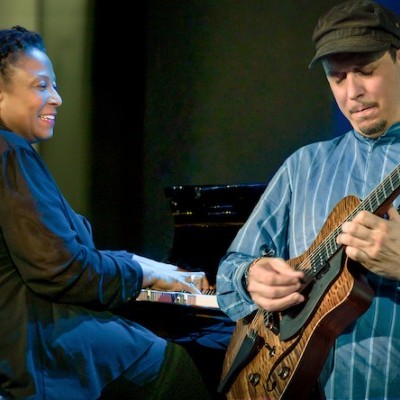
“Both of us are quite grounded in the craft, the tradition and the harmonic sense,” Rosenwinkel said of his experience playing with Allen. “Yet I felt we shared something mystical as well.”
Mar 12, 2024 11:42 AM
“There are a few musicians you hear where, as somebody once said, the molecules in the room change. Geri was one of…
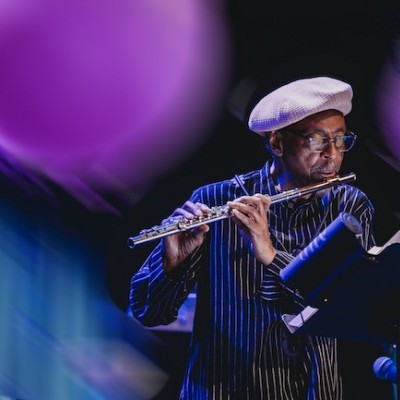
Henry Threadgill performs with Zooid at Big Ears in Knoxville, Tennessee.
Apr 9, 2024 11:30 AM
Big Ears, the annual four-day music celebration that first took place in 2009 in Knoxville, Tennessee, could well be…